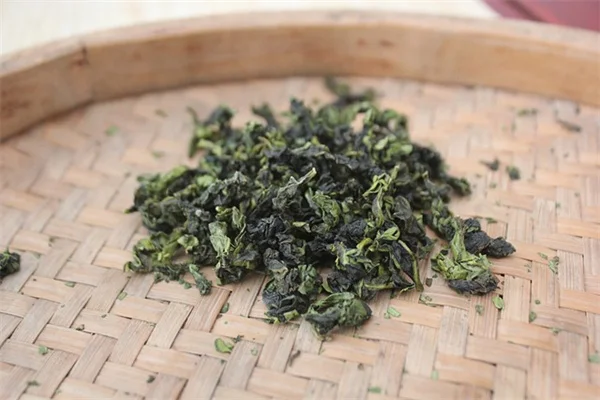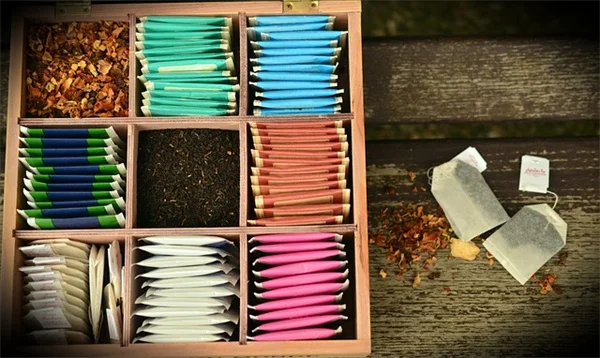Advertisement
Do fatty comfort foods actually make stress worse? The answer is yes - and science proves it! A groundbreaking University of Birmingham study reveals that eating high-fat foods during stressful times can worsen your body's stress response by damaging blood vessel function. Here's the deal: when you're stressed and reach for that burger or ice cream, you're creating a double whammy for your cardiovascular system. The good news? We've got better comfort food alternatives that actually help your body handle stress instead of making it worse. Keep reading to discover how simple food swaps can protect your heart health while still satisfying those stress cravings.
E.g. :Wegovy Weight Loss Results: 10% Body Weight Shed in 4-Year Study
- 1、Why Comfort Food Feels So Good (But Isn't Actually Helping)
- 2、Breaking the Stress-Eating Cycle
- 3、Superfoods for Your Stressed-Out System
- 4、Creating Your Anti-Stress Eating Plan
- 5、Long-Term Strategies for Stress-Proof Eating
- 6、The Hidden Social Aspect of Comfort Eating
- 7、The Sleep-Stress-Food Connection
- 8、Emotional Eating vs. Physical Hunger
- 9、The Role of Hydration in Stress Eating
- 10、Mindful Eating for Stress Relief
- 11、FAQs
Why Comfort Food Feels So Good (But Isn't Actually Helping)
The Science Behind Stress Cravings
Ever wonder why you suddenly need that pint of ice cream after a terrible day? Your brain's actually playing tricks on you! When stressed, your body pumps out cortisol - nature's way of saying "Eat all the calories!" Our ancestors needed this for survival, but today it just makes us raid the snack aisle.
Here's the kicker: that temporary comfort comes at a cost. A recent University of Birmingham study tracked 21 healthy adults eating butter croissants before stressful math tests (talk about cruel and unusual punishment!). The results showed:
| Meal Type | Vascular Function Drop | Brain Oxygen Drop |
|---|---|---|
| High-fat meal | 1.74% | 39% |
| Low-fat meal | 1.18% | Minimal |
Your Blood Vessels Hate Stress Eating
Picture your blood vessels as highways. The endothelium is like the smooth pavement that keeps traffic flowing. Stress creates potholes, and fatty foods? They're like dumping gravel on those potholes!
Nutritionist Kelsey Costa explains: "Eating fries during a crisis is like throwing gasoline on a fire. Your blood vessels need 90 minutes to recover - that's longer than most Netflix episodes!" Even scarier? Just 1% reduced function means 13% higher heart disease risk.
Breaking the Stress-Eating Cycle
 Photos provided by pixabay
Photos provided by pixabay
Why We Keep Doing This to Ourselves
Here's a mind-blowing question: If stress eating makes things worse, why can't we stop? Simple - your primitive brain doesn't know the difference between running from a lion and your overflowing inbox. Both trigger the same "Eat now, think later" response.
Medical reviewer Robert Iafelice notes: "Modern stress is like having imaginary lions chasing us 24/7. No wonder we're all clutching chocolate bars!" This constant cortisol flood explains why 68% of Americans admit to stress eating weekly.
Healthier Comfort Alternatives That Actually Work
Good news! You can trick your stress response with these smart swaps:
- Crunch craving? Try roasted chickpeas instead of chips
- Sweet tooth? Frozen grapes beat ice cream any day
- Need comfort? Warm herbal tea with honey satisfies without the guilt
Pro tip: Keep "emergency snacks" like almonds and dark chocolate at your desk. When stress hits, you'll grab these instead of the vending machine.
Superfoods for Your Stressed-Out System
The Endothelium's Favorite Foods
Imagine your blood vessels throwing a party and only inviting VIP guests. These foods would be on the list:
- Blueberries (nature's tiny superheroes)
- Beetroot (gives you better blood flow than a caffeine rush)
- Pomegranate juice (like a spa day for your veins)
Here's another question: Why do plant foods work so well? They contain polyphenols - special compounds that act like microscopic repair crews for your blood vessels. A Harvard study found people eating these foods daily had 31% better vascular function.
 Photos provided by pixabay
Photos provided by pixabay
Why We Keep Doing This to Ourselves
Not all fats are villains! The good guys (omega-3s) actually fight stress damage. Nutritionist Costa recommends:
- Wild salmon (2 servings weekly)
- Chia seeds (sprinkle on everything!)
- Walnuts (perfect stress-relief snack)
Fun fact: People with high omega-3 levels report 20% less stress. That's better than most happy hours!
Creating Your Anti-Stress Eating Plan
Timing Is Everything
The Birmingham researchers discovered something fascinating - the worst time to eat fat is right before stress hits. If you know a tough meeting's coming:
- Eat a light meal 2 hours before
- Choose complex carbs like oatmeal
- Hydrate with lemon water
This gives your body time to process nutrients properly before the stress storm hits.
The 5-Minute Stress Reset
Next time stress cravings hit, try this instead:
- Step away from your desk (seriously, move!)
- Do 10 deep breaths (count slowly)
- Sip cold water (shocks your system pleasantly)
- Text a funny meme to a friend (laughter helps)
- Then decide if you still need that snack
Most people find the craving passes after this mini-break. Your future self (and your heart) will thank you!
Long-Term Strategies for Stress-Proof Eating
 Photos provided by pixabay
Photos provided by pixabay
Why We Keep Doing This to Ourselves
Here's a wild connection - your gut bacteria influence cravings! A diverse microbiome helps regulate stress hormones. Boost yours with:
- Greek yogurt (probiotic powerhouse)
- Kimchi or sauerkraut (delicious microbes)
- Whole grains (they feed good bacteria)
Studies show people with healthy gut microbiomes report 45% fewer stress-eating episodes. Now that's food for thought!
The Power of Preparation
Let's be real - when stress hits, you'll grab whatever's easiest. Set yourself up for success:
| Stress Time | Smart Prep | Benefit |
|---|---|---|
| Sunday night | Wash and chop veggies | Easy snacking all week |
| Work mornings | Pack healthy snacks | No vending machine runs |
| After work | Have dinner ingredients ready | Prevents takeout binges |
Remember: You're not weak for stress eating - you're human. But with these tricks, you can outsmart those cravings and protect your health!
The Hidden Social Aspect of Comfort Eating
Why We Crave Certain Foods When Lonely
Ever notice how you suddenly want mom's chicken soup when feeling isolated? There's actually science behind this! Research from the University of Buffalo shows that comfort foods often trigger nostalgic memories of happier times with loved ones. Your brain associates mac and cheese with childhood safety, making it the ultimate emotional band-aid.
But here's the twist - while these foods provide temporary emotional relief, they don't actually solve the underlying loneliness. A better approach? Call a friend while eating that comfort meal. The combination of social connection and familiar flavors creates double the comfort without the guilt!
The Office Donut Phenomenon
Why do break rooms turn into sugar central during stressful work periods? It's not just about cravings - shared comfort food creates workplace bonding. That box of donuts becomes a communal stress reliever, giving coworkers a moment of connection amidst chaos.
Instead of banning treats completely, try organizing "healthy comfort food potlucks" where everyone brings a nutritious version of their favorite comfort dish. You'll maintain that valuable social aspect while keeping blood sugar levels stable!
The Sleep-Stress-Food Connection
How Poor Sleep Wrecks Your Willpower
Ever wonder why you can resist junk food all day, then demolish a bag of chips at 11 PM? Blame sleep deprivation! When you're tired, your brain's prefrontal cortex (the decision-making center) takes a nap while your amygdala (the emotional, impulsive part) goes into overdrive.
A fascinating University of Chicago study found that sleep-deprived participants ate 40% more calories from snacks compared to their well-rested selves. The solution? Prioritize sleep like your health depends on it - because it literally does!
The Midnight Snack Trap
Here's a table showing how different bedtime routines affect late-night eating:
| Evening Routine | Likelihood of Nighttime Snacking | Average Calories Consumed |
|---|---|---|
| Screen time before bed | 78% | 450 calories |
| Reading a book | 32% | 120 calories |
| Light stretching/yoga | 15% | 50 calories |
Pro tip: Brush your teeth right after dinner. That minty freshness creates a psychological barrier against snacking!
Emotional Eating vs. Physical Hunger
How to Tell the Difference
Here's a simple test: if someone offered you a plain baked potato right now, would you eat it? If you're truly hungry, that potato sounds amazing. If you're emotionally eating, you'll hold out for something more exciting like pizza or ice cream.
Other telltale signs of emotional hunger:• Comes on suddenly• Craves specific foods• Leads to mindless eating• Leaves you feeling guilty afterward
The 5-Minute Pause Technique
When a craving hits, set a timer for 5 minutes and do something completely different - organize your sock drawer, do jumping jacks, or call your grandma. 90% of cravings disappear within this window because emotional hunger is fleeting, while true hunger persists.
Remember: It's not about perfection. If you do give in to emotional eating occasionally, don't beat yourself up. Just notice how it makes you feel physically and emotionally, and use that awareness next time!
The Role of Hydration in Stress Eating
Why Your Brain Confuses Thirst for Hunger
Here's a wild fact - the same part of your brain regulates both hunger and thirst. When slightly dehydrated, your brain often misinterprets signals as food cravings instead of water needs. Next time you're "hungry" between meals, try drinking a full glass of water first!
A Cornell University study found that participants reduced afternoon snack calories by 25% simply by drinking 16oz of water 30 minutes before their usual snack time. That's easier than any diet!
Flavored Water Hacks
If plain water bores you, try these delicious combos:• Cucumber + mint + lime• Frozen berries + basil• Orange slices + cinnamon stick• Pineapple chunks + coconut water
Keep a pretty water bottle at your desk as a visual reminder. When stressed, the act of sipping can provide the same oral fixation as snacking, without the calories!
Mindful Eating for Stress Relief
The Raisin Experiment
Try this powerful exercise: take one raisin and spend 5 minutes eating it. Notice its texture, smell, taste, and how it changes as you chew. This practice reveals how much we normally eat on autopilot while stressed!
Mindful eating creates a buffer between stress and food. When you slow down, you give your brain time to register fullness signals that normally get drowned out by stress hormones.
Creating a No-Distractions Zone
Make this rule: no screens during meals. Not your phone, not your laptop, not even reading material. Just you and your food. You'll naturally eat less while enjoying your meals more. It's like a mini meditation break in your day!
Bonus benefit: When you're not multitasking, you'll actually taste your food properly. That pint of ice cream? You'll likely need just a few satisfying spoonfuls instead of the whole container!
E.g. :The Negative Effects of Stress Eating - Ingredia USA Inc.
FAQs
Q: Why do fatty foods make stress worse?
A: Here's what's happening in your body: when you eat fatty foods during stress, they team up with cortisol (your stress hormone) to create the perfect storm. The Birmingham study showed this combo reduces blood flow by 1.74% and slashes brain oxygen by 39%! Think of it like this - stress already puts potholes in your blood vessel "roads," and fatty foods dump gravel in them. Nutritionist Kelsey Costa explains this effect can last 90 minutes after your stressful event. The scary part? Just 1% reduced vascular function means 13% higher heart disease risk. That's why we recommend reaching for stress-busting snacks like blueberries or walnuts instead.
Q: What are the best foods to eat when stressed?
A: Ditch the donuts and try these real stress-busters: First, polyphenol-packed foods like blueberries and beetroot - they work like tiny repair crews for your blood vessels. Second, omega-3 rich options like salmon or chia seeds - these healthy fats actually fight stress damage. Third, probiotic foods like yogurt - they help balance your gut microbiome which controls cravings. Pro tip: Keep these "emergency snacks" handy for stressful moments: dark chocolate (70%+ cacao), roasted chickpeas, or frozen grapes. They satisfy cravings without the vascular damage - plus they taste amazing!
Q: How long does stress affect my body after eating fatty foods?
A: The Birmingham researchers found the double-whammy effect lasts way longer than you'd think! After eating fatty foods during stress, your vascular function takes 90 minutes to recover - that's longer than most movies! Here's why it matters: during this recovery period, your blood vessels can't properly regulate blood flow or oxygen delivery. The study's lead author compares it to "trying to drive with the parking brake on." The solution? Time your meals right - if you know stress is coming (like a big meeting), eat a light, plant-based meal 2 hours beforehand. This gives your body time to properly process nutrients before the stress hits.
Q: Why do I crave junk food when stressed?
A: Blame your ancient brain wiring! Medical expert Robert Iafelice explains: "Your brain doesn't know the difference between running from a lion and your overflowing inbox." Both trigger the same "Eat now, think later" response. Here's what's happening: stress spikes cortisol, which screams "Find calories!" to your primitive brain. Modern problems? Our ancestors needed this for survival, but today it just makes us raid the snack aisle. The crazy part? 68% of Americans admit to weekly stress eating. The good news? You can retrain these cravings by keeping healthy alternatives handy and using our 5-minute stress reset technique.
Q: Can stress eating actually cause heart problems?
A: Unfortunately, yes - and here's why it's scary: that temporary comfort comes with long-term risks. The study shows stress eating creates endothelial dysfunction (fancy term for damaged blood vessels), which is step one toward cardiovascular disease. Think of it like this - every stress + fatty food episode is like making a small withdrawal from your heart health bank account. The researchers found these effects compound over time, especially if you're regularly stress eating. But don't panic! The solution is simple - swap just a few stress snacks each week for healthier options. Your future self (and your cardiologist) will thank you!







